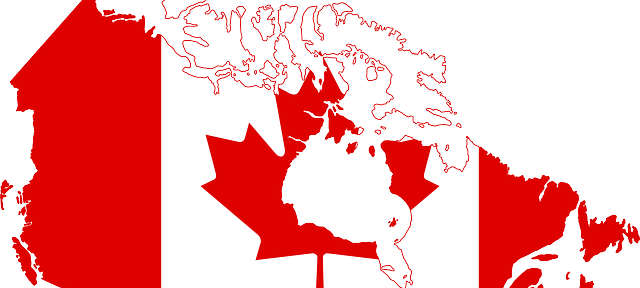
Questions about Wills?
A Last Will is a legal document that outlines how an individual wants their property and assets distributed after their death. In the absence of a Will, the provincial laws decide how assets are divided, which might not align with the deceased’s wishes.
In Canada, having a will is essential for several reasons:
- Asset Distribution: Ensures that your assets, whether it’s real estate, financial accounts, or personal belongings, are distributed to beneficiaries of your choosing.
- Child Guardianship: If you have minor children, you can designate who you’d like to care for them in your absence.
- Estate Tax: Proper estate planning through a will can potentially minimize taxes and other fees that might arise during the probate process.
- Easing the Process: Death can be a challenging time for loved ones. A clear and legally sound will can ease the administrative and emotional burden on your family.
- Conflict Prevention: Clearly outlining your wishes can reduce potential disputes among family members, ensuring harmony after you’re gone.
Here are some of the top 20 questions we frequently get about Last Wills:
Why do I need a Last Will and Testament?
Do I need a Guardian for my minor children?
What type of Will is suitable?
How do I ensure that my Will complies with laws?
Who should be a Witness to my Will?
What should I do with my Digital Assets?
Should I include Specific Funeral Arrangements?
How do I revoke previous Last Wills?
How do I include Charitable Donations?
What should I do if I have property in another country?
Can I exclude family members from my Last Will?
How can I minimize estate taxes?
When should I Review and Update my Last Will?
How do I protect my Last Will from challenges?
Can I include Pets in my Last Will?
Where should I store my Last Will?
Without a Last Will and Testament, you’re letting the state decide who gets your assets, who becomes the guardian of your children, and how your estate will be managed. While the process can vary by province, typically assets are divided among the spouse and children. If no immediate family is available, the search for relatives can extend to more distant family members. This process can be long, emotional, and contentious.
2. Who Are My Beneficiaries?
Beneficiaries are individuals, organizations, or entities that you designate to receive portions of your estate upon your death. Choosing your beneficiaries involves careful thought and planning:
- Identify Family Members: Usually, spouses, children, and other close family members are included. Consider your relationship dynamics and financial needs.
- Consider Charities: If you wish to leave a portion of your estate to charity, specify the organizations and amounts.
- Include Contingent Beneficiaries: These are backups in case your primary beneficiaries predecease you or are unable to accept the inheritance.
- Avoid Conflicts of Interest: Be careful with designating beneficiaries who might also be witnesses to your will, as it could lead to legal challenges.
- Review and Update Regularly: Life changes, such as marriages, divorces, or births, should prompt a review of your beneficiary designations to ensure they reflect your current wishes.
By carefully choosing and clearly identifying your beneficiaries, you ensure that your assets are distributed according to your desires, minimizing potential disputes or misunderstandings.
3. Who Should Be My Executor?
Your executor plays a critical role in administering your estate, so it’s vital to choose someone responsible, trustworthy, and capable of handling legal and financial matters. Here are some things you should understand about the role of Executorship:
- Understanding the Role: The executor’s duties include gathering assets, paying off debts, filing final tax returns, and distributing assets. It’s a significant responsibility that requires attention to detail.
- Consider Professional Assistance: If your estate is complex, consider appointing a trust company or professional executor.
- Communication: Discuss the role with your chosen executor to ensure they understand the responsibilities and are willing to accept them.
- Naming an Alternate: Choose a backup executor in case your first choice is unable to perform the duties.
- Consider Their Location: If your executor lives in another province or country, it may add complexity to the administration process.
Choosing an executor is not a decision to be taken lightly. It requires trust, communication, and an understanding of the legal and financial responsibilities involved.
4. Do I Need to Name a Guardian for My Minor Children?
If you have minor children, naming a guardian in your will is one of the most crucial decisions you will make:
- Consider the Children’s Needs: Think about who will provide the most loving and stable environment for your children.
- Discuss with Potential Guardians: Talk with potential guardians to ensure they are willing and able to assume this responsibility.
- Consider Financial Factors: Assess whether the potential guardian has the financial means to care for your children or if arrangements need to be made to assist them financially.
- Include Specific Instructions: If you have specific wishes for your children’s upbringing, including educational or religious considerations, outline them in your will.
Naming a guardian ensures that your children are cared for by someone you trust and who shares your values. It’s a decision that requires careful thought, open communication, and clear instructions to ensure your children’s well-being.
5. What Assets Do I Own and How Do I Want Them to be Distributed?
Understanding and categorizing your assets is a foundational step in writing your will.
- List All Assets: Include real estate, financial accounts, personal belongings, vehicles, investments, digital assets, and even pets.
- Assign Beneficiaries: Clearly identify who will receive each asset, or portion thereof, to avoid ambiguity.
- Consider Joint Ownership: Understand how jointly owned assets will be distributed, as they may pass directly to the co-owner.
- Be Aware of Legal Restrictions: Certain assets, like RRSPs and pensions, may have specific beneficiary designations outside of the will.
- Update Regularly: Changes in assets or personal relationships should prompt a review of these designations.
By being thorough and transparent in this area, you minimize the risk of misunderstandings or disputes among your heirs.
6. What Type of Will is Suitable for My Situation?
In Canada, there are several types of wills, each catering to different needs:
- Formal Wills: These are typed and signed before witnesses. They are best for complex estates and provide clarity.
- Holograph Wills: Entirely handwritten and signed by the testator without witnesses, this is a quick way to create a will but may lead to disputes.
- Notarial Wills: Common in Quebec, these are drawn up by a notary.
- Online Wills: These wills created through online platforms such as FormalWill.
Choosing the right type depends on your circumstances, the complexity of your estate.
7. How Do I Ensure My Will Complies with My Province’s Laws?
Canada’s legal system varies by province, especially regarding estate law. Ensuring compliance requires several steps:
- Research Provincial Laws: Understand the legal requirements in your province, such as age restrictions, witness regulations, or special forms.
- Consider Legal Assistance: Consulting a legal professional may help ensure compliance with provincial laws.
- Avoid Conflicts: Make sure that the beneficiaries and witnesses’ roles do not conflict with your province’s requirements.
- Understand Intestacy Rules: Knowing what happens if your will is deemed invalid can guide you in creating a robust document.
Compliance with provincial laws ensures your will is valid and reduces the risk of challenges or complications during probate.
8. Who Should Witness My Last Will?
Witnessing a will is a critical part of validating the document:
- Choose Competent Witnesses: Typically, witnesses must be of legal age and mentally competent.
- Avoid Interested Witnesses: In many provinces, beneficiaries or their spouses should not witness the will, as it may invalidate their inheritance.
- Understand Provincial Requirements: Witnessing rules can vary, so consult your province’s legislation to ensure compliance.
- Witnesses’ Role: They verify your identity, that you signed willingly, and that you appear competent.
The selection of appropriate witnesses is a vital step in creating a legally valid will, reflecting the seriousness with which the document must be treated.
9. What Should I Do with my Digital Assets?
Digital assets, such as online accounts, cryptocurrencies, and digital files, require special consideration in estate planning:
- List Digital Assets: Include everything from social media accounts to digital currencies, subscriptions, and personal files.
- Assign Access: Consider providing secure ways for your executor or beneficiaries to access these assets, such as a digital vault or password manager.
- Understand Terms of Service: Some platforms may have specific rules regarding account transfer or termination upon death.
- Provide Clear Instructions: Outline what you want to happen with each digital asset, whether it’s deletion, transfer, or memorialization.
By addressing digital assets, you ensure that they are handled appropriately, according to your wishes, and don’t become lost or misused.
10. Should I Include Specific Funeral Arrangements?
Including funeral or memorial arrangements can be a compassionate addition to your Will:
- Specify Preferences: You may include details on burial vs. cremation, location of services, and any specific ceremonies or religious practices.
- Pre-Pay Expenses: Some opt to pre-pay or set aside funds for funeral expenses to alleviate the financial burden on loved ones.
- Communicate Outside the Will: Since wills are often read after funeral arrangements are made, ensure these wishes are communicated to family members or the executor in advance.
- Consider a Separate Document: A separate “letter of instruction” might be a better place for these details, as it can be more easily accessed.
By outlining your preferences, you provide guidance and relieve loved ones of making difficult decisions during an emotional time.
11. How Do I Revoke Previous Wills?
Revoking previous wills is essential to prevent confusion:
- Include Revocation Clause: New wills typically include a clause that revokes all previous versions.
- Destroy Old Copies: Physically destroying old copies helps ensure that there’s no confusion about your current wishes.
- Notify Relevant Parties: Inform your executor and anyone else who has a copy of the old will that a new one has been created.
Revoking old wills clearly and effectively ensures that only your most recent wishes are carried out.
12. How Do I Include Charitable Donations?
Leaving a legacy through charitable giving is a noble gesture:
- Identify Charities: Choose organizations that resonate with your values and goals.
- Determine Amount or Percentage: Decide whether to leave a specific amount or a percentage of your estate.
- Consult with Charities: Some charities have specific wording or instructions for bequests, so it’s wise to consult with them.
- Consider Tax Implications: Charitable gifts can affect the estate’s tax situation, so understanding these implications may be valuable.
Including charity donations aligns your legacy with your values and can positively impact causes you care about.
13. What Should I Do If I Have Property in Another Country?
Owning foreign assets adds complexity to estate planning:
- Understand Foreign Laws: Different countries have different inheritance laws, taxes, and regulations that must be addressed.
- Consider Separate Wills: Some legal experts recommend having separate wills for each jurisdiction where you own property.
- Consult with Foreign Legal Experts: Engaging legal professionals in the country where the property is located ensures compliance with local laws.
- Consider Tax Implications: Understand the Canadian and foreign tax obligations related to owning and inheriting foreign property.
Dealing with foreign assets requires careful planning, understanding of international law, and potentially seeking professional legal assistance.
14. Can I Exclude Family Members from My Last Will?
Excluding a family member, especially a spouse or child, is a delicate matter:
- Specify the Exclusion: If you wish to exclude someone, clearly state this in the will, along with the reasons, to minimize potential legal challenges.
- Understand Legal Rights: In some provinces, spouses and dependent children may have legal rights to challenge exclusions.
- Consider Professional Advice: Consulting with an estate lawyer may help you navigate the complex legal landscape of intentional exclusions.
Excluding a family member must be done with care and awareness of legal ramifications to prevent potential conflicts or challenges.
15. How Can I Minimize Estate Taxes?
Minimizing estate taxes requires careful planning:
- Utilize Tax-Free Gifts: Gifting assets while alive may reduce estate taxes.
- Consider Trusts: Establishing specific trusts can provide more control over asset distribution and potential tax benefits.
- Understand Probate Fees: Different provinces have varying fees for processing wills; understanding these can guide estate planning.
- Seek Professional Advice: Tax laws are complex, and professional advice can help identify opportunities to minimize estate taxes.
Taking steps to minimize estate taxes ensures more of your estate goes to your chosen beneficiaries rather than to taxes and fees.
16. When Should I Review and Update my Will?
Regular reviews ensure your will reflects your current situation:
- After Major Life Events: Marriage, divorce, birth of a child, or the death of a beneficiary are common triggers for a review.
- Changes in Assets or Debts: Significant changes in financial circumstances should prompt a reevaluation.
- Changes in Laws: Legal changes might affect the validity or effectiveness of your will.
- Regular Intervals: Even without significant changes, reviewing your will every few years is a good practice.
By regularly reviewing and updating your will, you ensure it continues to align with your wishes and complies with current laws.
17. How Do I Protect My Will from People who want to challenge my Will?
Protecting your will from legal challenges requires thought and care:
- Be Clear and Precise: Ambiguity may lead to challenges, so be specific in your language.
- Consider Vulnerable Beneficiaries: If you have beneficiaries who may be perceived as vulnerable or influenced, additional precautions may be necessary.
- Maintain Mental Competence Records: If there are concerns about mental competence, medical evaluations can provide evidence.
- Seek Legal Advice: Legal professionals can identify potential weak points and help bolster your will against challenges.
By proactively addressing potential challenges, you increase the likelihood that your will is executed according to your wishes.
18. Can I Include Pets in My Last Will and Testament?
Pets are beloved family members for many, providing your pet’s with the best love and care when you pass away is the best thing for them. You can plan for your pets’ future by checking out FormalWill’s Pet Will. This comprehensive document includes the following:
- Name a Caregiver: Identify a willing and able caregiver for your pets.
- Provide Financial Support: Consider setting up a pet trust or allocating funds for the pet’s care.
- Include Specific Instructions: If you have specific wishes for your pet’s care, include them in this Pet Will.
19. What If I Own a Business?
Business succession planning can be complex:
- Consider Your Business Structure: Different business structures may require different estate planning strategies.
- Identify Successors: Decide who will take over or manage your business interests.
- Create a Succession Plan: A detailed business succession plan can guide the transition and minimize disruption.
- Consult Professionals: Business and legal professionals can provide guidance tailored to your business and industry.
Careful planning ensures the continued success of your business and the protection of your professional legacy.
20. Where Should I Store My Last Will?
The safe storage of your will is vital:
- Avoid Safety Deposit Boxes: If the will is in your name only, it might not be accessible immediately after your death.
- Consider a Lawyer’s Office: Many people keep their wills with their lawyers.
- Inform Executors: Make sure your executor knows where to find the will.
- Avoid Damages: Store it in a place safe from potential damage, like fire or water.
Choosing a secure and accessible location for your will ensures that it’s available when needed and remains in good condition.
Do you have any questions of your own to add?
This completes our exploration of the Top 20 Questions on Making a Will in Canada. By thoughtfully considering these questions, you can create a Will that honors your legacy, provides for your loved ones, and withstands legal scrutiny.






